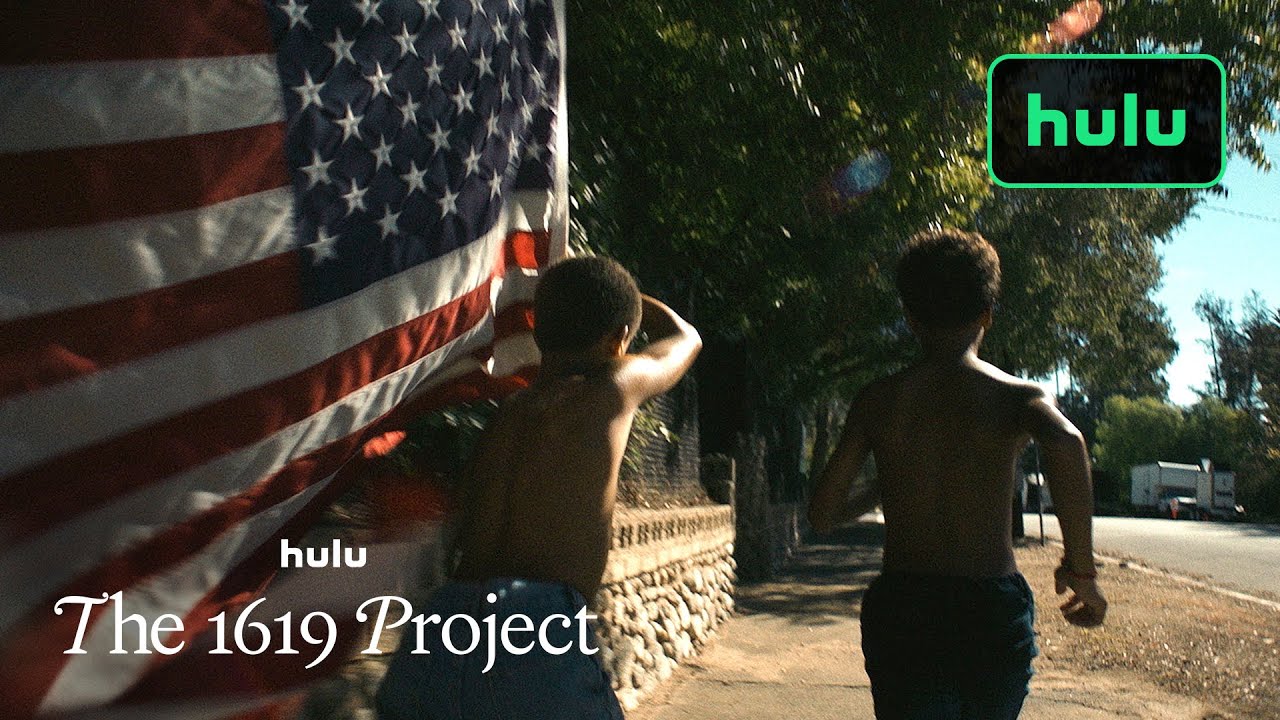It is easy to see why Nikole Hannah-Jones so frightens her ideological adversaries.
“The 1619 Project,” the editorial franchise she created in her capacity as a journalist at The New York Times, is entering its fourth year. What began as a long-form effort in 2019 became a 2021 book and now a 2023 television series, all expanding on Hannah-Jones’ contention that our nation’s true founding occurred with the introduction of enslaved Africans in colonial America. In carrying this thesis forward, finding resonances throughout history and amplifying it across media, Hannah-Jones, who executive produces Hulu’s new “1619 Project” series and appears on-camera and in voice-over, seems both a nimble thinker and an unusually adaptable messenger.
This helps make the documentary feel novel, even as it restages for a new medium a conversation Hannah-Jones has been having for some time. Episodes toggle newsmagazine style between interviews and more general observations about history and culture, including Hannah-Jones’ personal story as a biracial woman with roots in the South. The show ranges widely: One compelling installment, in the middle of the series’ run, contemplates the role of music in Black American life. The episode is studded with heart-wrenching footage of blackface performers mocking Black joy, and anchored by conversations with Times critic Wesley Morris and disco pioneer Nile Rodgers.
Part of Hannah-Jones’ appeal is that she’s no purist. (Indeed, though she’s obviously far greener an on-camera presence, her approach as a broadcaster resembles that of another “The 1619 Project” executive producer, Oprah Winfrey, whose daily talk show ably addressed race in American life, Winfrey’s personal story or popular culture on any given day.) As a topic, the extent to which music extends from slavery is clear, but the connection of Rodgers’ tale of overcoming career setbacks during the fall of disco is one degree further removed still — and worth telling both on its own terms and as part of a tribute to Black ingenuity and virtuosity.
It all fits together as a sort of alternative curriculum of Hannah-Jones’ devising. In the first episode, the journalist describes her high school experience of a Black Studies class: “I remember feeling angry that no one had bothered to teach us that Africans and slavery had been here before the Mayflower, and then empowered that our lineage as Americans went back that far.” This may be what bad-faith critics of Hannah-Jones’ work — like former President Donald Trump, who launched a “1776 Commission” to provide “patriotic education” to schoolchildren — most crucially miss. There is often read into Hannah-Jones a dourness or scolding quality, when in fact her work is as celebratory of what Black people have overcome as it is rightly critical of the obstacles in their way. As Hannah-Jones says in the series’ introduction, “It was by virtue of our bondage that we became the most American of all”: The setbacks endured by Black citizens of a nation committed to white supremacy are what make the nation’s story.
At times, though, Hannah-Jones can be expansive to a fault, as when, wrapping up an episode assaying the inspiring worker-led strikes at Amazon, she claims that capitalism was “born on the plantation.” There are resonances between 2020s American life and the antebellum era that deserve to be drawn out with care, but assertions that the modern economic system was not just bolstered by slavery but invented by it can grow head-spinning, stepping out farther than can be supported by the evidence Hannah-Jones has already marshaled well.
But these critiques do not diminish the good intentions of “The 1619 Project” or its genuinely impressive assemblage of American stories. It’s the conclusions that can sometimes feel overstretched: When Hannah-Jones is in the moment, speaking to members of her family or to the subjects she makes feel at home, she’s a very strong broadcast presence — intuitive, empathetic and clear. (This makes for a great weapon: Only an ideologue, the even slightly sympathetic viewer will agree, could see in this comfortable and reasonable presence an adversary.) Yet, at times, the concept of “1619” — the engine of her recent notoriety, and the reason that a Times journalist has a Hulu series all her own in the first place — can become somewhat constricting. What Hannah-Jones discusses well are Black ways of life over time: What families like hers have faced and the strength it has taken to do so. These crucially American stories are undeniably rooted in our nation’s rotted past, a story that deserves to be told. But Hannah-Jones’ skill with interview subjects and her deftness at drawing small but crucial connections are both so strong that I came to yearn for her to craft a narrative less sweeping — to capture America, for a moment longer, through any of the individual threads she so ably pursues, without the obligation of trying to fit it all within a worthy but increasingly massive project.
![]()
![]()


